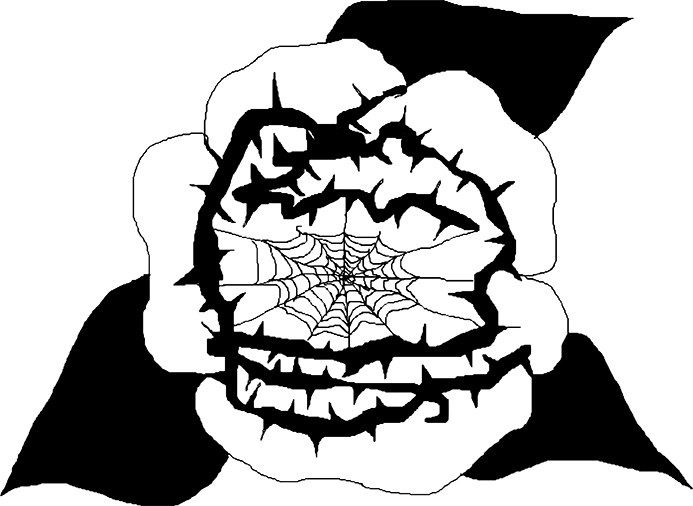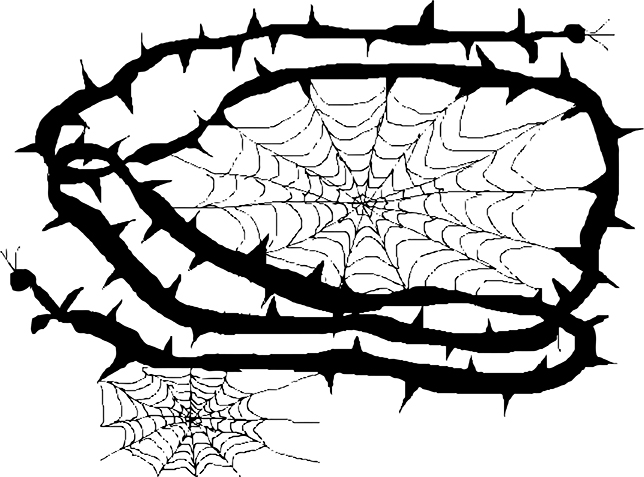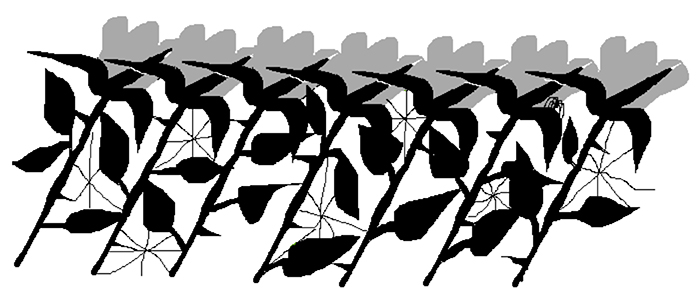Trigger warning: This article deals with topics around sexual assault and predatory behaviour in music scenes. If you are sensitive to this, you may find yourself uncomfortable. If you are uncomfortable, and you are not a survivor of sexual assault, I encourage you to read on.
❇︎
While researching and writing this piece I hit several walls. The information I had gathered all seemed so basic. But what’s important to realize, for those who may find the following text redundant or repetitive, is that many people do not consider active community response to sexual assault as common-sense. The most frequent group action towards disclosures of sexual assault or predatory behaviour is collective discomfort and silencing. This article seeks to subvert that response by providing an overview of what it means to acknowledge survivors and demand accountability from abusers. It is not comprehensive or definitive, but it is a contribution towards what needs to become a larger conversation. While sexual assault occurs in many scenes, for the purpose of this article I will be focusing on the music scene.
Communication
There are sexual abusers in Vancouver who have not made public statements or sought help for their behaviour. And yet, they continue to participate in the various music scenes where accusations against them have been made. Finding out who these people are, however, is difficult. Sometimes their names are scratched onto bathroom walls, or relayed through word-of-mouth. Such word-of-mouth is often discredited as gossip without substance. For newcomers to the Lower Mainland, without a lot of connections in the city, it is almost impossible to learn the names of abusers. The silence around these names puts people at risk.
With that said, there is no straightforward way to share the names of abusers. Some people resort to social media, opening themselves up to public attack and possible lawsuit. Community policing through word-of-mouth is also unideal. As Nikki Reimer points out in the essay “Hold Your Fucking Communities Accountable,” rape culture is intersectional. When stories of sexual abuse are limited to gossip networks, there is no guarantee that everyone will hear about it. Gossip doesn’t always cross over, meaning that marginalized communities in particular may not get relevant information about abusers. In the past, there has been talk of anonymously posting a list of alleged abusers online, but posting names without context is not healthy or productive. An anonymous list encourages open hostility. It has the capacity to instill fear, and pushes away abusers before they seek help for their behaviour. Efficiently calling out abusers in the long-term is not a one-way discussion.
Accountability
It is important to make a distinction between abusers who have not made public statements and gotten counselling for their behaviour, and those who have. Some abusers work to educate themselves on consent, boundaries and emotional manipulation. Seeking accountability is not the punishment or ostracization of abusers, but a commitment towards having uncomfortable conversations and healing as a community. This may mean eventually accepting rehabilitated abusers back into the music scenes where they were abusive. It does not mean forgetting or silencing what happened, or allowing abusers to return to previous positions of authority, but it does mean holding space for ongoing discussions. Abusers are capable of being loved and participating in community. This is a difficult concept for survivors especially, which is why it is so important to show sensitivity and support towards them above anyone else.

Believe survivors
Believe survivors. Respect the courage that survivors show in recounting traumatic experiences and/or naming their abusers. It takes an incredible amount of emotional labour to talk about sexual assault. To speak openly about it is an act of resistance. There is a tendency to discredit survivors by attempting to poke holes in their stories, or justifying the actions of their abusers. Some people may claim that survivors share their stories for fame or notoriety, when in reality they face potential backlash and shaming. Experiences of abuse can be difficult to remember. Whether or not all the facts of a story are 100 percent accurate does not matter. What matters is acknowledging the pain of survivors, which is real to them. When communities do not listen to survivors, they enable sexual assault. The silencing of topics around sexual assault is hostility through oppression.
Legal risks
Not to be overlooked are the real legal risks to calling out sexual predators. Publishing a call-out on Facebook or another social media platform, or circulating the names of alleged abusers through word-of-mouth may result in legal action for damages by the alleged abuser. Canada’s defamation laws are plaintiff-friendly, in that they assume defamatory statements are false and made with malice, and place the burden of proof on the defendants who made or republished the statements. In the case of sexual assault call-outs, especially instances where police reports are not filed, defamation court cases can be complicated, lengthy and expensive for everyone involved. Some abusers have been known to hire lawyers to send cease and desist letters to survivors and others who openly discuss predatory behaviour. Unfortunately, this is often an effective tactic of intimidation against survivors. Another tactic of intimidation that is most often used by companies, but can be used by individuals, is a SLAPP suit. A Strategic Lawsuit Against Public Participation is used to silence critics.

If you leave this article with anything, let it be the importance of enduring uncomfortable discussions about sexual assault. There is no perfect way of calling out predatory behaviour. Processes of accountability must be determined by the community as a whole. Perhaps that means the alleged abuser makes a public statement and seeks counselling, quits social media, or leaves a scene entirely for a period of time. These are all hard discussions to be had as a group of venues, promoters, media outlets, music labels and party-goers. When survivors speak up, it is the community’s responsibility to listen and respond.
I read dozens of articles and zines researching for this piece, and while there were many approaches to call-outs and accountability, there was a common belief that kept resurfacing: People who have not publicly acknowledged disclosures of sexual assault against them should not be supported by the community. Because sexual abusers in music scenes are often in positions of power, this may mean avoiding events and creative initiatives organized by or featuring alleged abusers. For artists, this may mean sacrificing opportunities for exposure. However, when the community shows solidarity with survivors by encouraging safer music scenes, everyone benefits. Showing support for survivors is a small action towards shaping a society that prioritizes consent and respect.
x
For more articles and online resources, visit the following links:
“Hold Your Fucking Communities Accountable” by Nikki Reimer, published online January 4, 2017. tiahouse.ca/nikki-reimer-hold-fucking-communities-accountable
“Resources For Dealing With Conflict And Harm” by Nora Samaran, published online January 5, 2017. norasamaran.com/2017/01/05/resources-for-dealing-with-conflict-and-harm
“Stop Supporting and Protecting Abusive Men” by Aimee Cliff, Leah Mandel, Juliana Pache, Ali Suliman, Lakin Starling and Ruth Saxelby, published online July 25, 2017. thefader.com/2017/07/25/stop-supporting-and-protecting-abusive-men


